Staff
Winston Kyan
Director of Graduate Studies, Asian Studies
envelopewinston.kyan@utah.edu | phone 801-587-8350
Get to Know Winston
Education
Research Interests and Publications
- Environment , Resource, and Food
-
Behavioral Economics
-
Gendered well-being
- Haimanti Bhattacharya & Subhasish Dugar (2023). Undervaluation versus Unaffordability
As Negotiation Tactics: Evidence from A Field Experiment. Journal of Economic Psychology.
Vol. 96. Published, 02/2023.
https://doi.org/10.1016/j.joep.2023.102609 - .Akiko Kamimura & Haimanti Bhattacharya, Mindy Steadman, Samin Panahi, Adrienne Griffiths,
Hsien-Wen Meng, Kathy Franchek-Roa. (2022). Dating/intimate partner violence and social
media use among college students. Violence and Gender. Vol. 9(4), 187-192. Published,
09/2022.
https://www.liebertpub.com/doi/abs/10.1089/vio.202... - Haimanti Bhattacharya & Subhasish Dugar (2022). Business Norm versus Norm-Nudge as
a Contract-enforcing Mechanism: Evidence from a Real Marketplace. European Economic
Review. Published, 03/2022.
https://doi.org/10.1016/j.euroecorev.2022.104078 - Bhattacharya, Haimanti (2022) `Climate Justice Implications of the Relationship between
Economic Inequality and Carbon Emissions in India' in Prakash Kashwan (ed.) Climate
Justice in India, Cambridge University Press. Published, 11/2022.
https://www.cambridge.org/core/books/climate-justi... - Haimanti Bhattacharya, Subhasish Dugar (2020). The Hidden Cost of Bargaining: Evidence
from A Cheating-prone Marketplace. International Economic Review. Vol. 61(3), 1253-1280.
Published, 03/2020.
https://onlinelibrary.wiley.com/doi/abs/10.1111/ie... - Haimanti Bhattacharya (2020). Environmental and Socio-economic Sustainability in India:
Evidence from CO2 Emission and Economic Inequality Relationship. Journal of Environmental
Economics and Policy. Vol. 9(1), 57-76. Published, 01/2020.
https://doi.org/10.1080/21606544.2019.1604267 - Haimanti Bhattacharya (2019). Do pro-social students care more for the environment?.
International Journal of Sustainability in Higher Education. Vol. 20(4), 761-783.
Published, 07/2019.
https://doi.org/10.1108/IJSHE-11-2018-0223 - Subhasish Dugar & Haimanti Bhattacharya (2019). Can concerns for social status mitigate
the `Lemons Problem'? Experimental evidence from the Indian caste hierarchy. Journal
of South Asian Development. Vol. 14(2), 151-179. Published, 06/2019.
https://doi.org/10.1177/0973174119850952 - Dugar, Subhasish & Bhattacharya, Haimanti (2017) "Fishy Behavior: A Field Experiment
on (Dis)honesty in the Marketplace." Journal of Behavioral and Experimental Economics, 67: 41-55. Published, 02/2017.
http://www.sciencedirect.com/science/article/pii/S... - Sharon Talboys, Manmeet Kaur, Jim VanDerslice, Lisa Gren, Haimanti Bhattacharya, Steve
Alder (2017) 'What is Eve Teasing? A Mixed Methods Study of Sexual Harassment of Young
Women in the Rural Indian Context.' Sage Open. Published, 03/13/2017.
http://journals.sagepub.com/doi/full/10.1177/21582...
Haimanti Bhattacharya
Director of Graduate Studies, Asian Studies
envelope haimanti.bhattacharya@utah.edu | phone 801-587-8350
Get to Know Haimanti
My research interests are in the fields of environment, resource & food; behavioral economics; gendered well being. A common underlying thread that ties my research topics is the challenges for the sustainability of human society - economic, social, and environmental sustainability. The primary geographic focus of my research is India.
"Tell me and I forget, teach me and I remember, involve me and I learn" - Benjamin Franklin
Education
PhD, Economics, University of Arizona.
Research, Publications, and Interests
- Environment , Resource, and Food
- Behavioral Economics
- Gendered well-being Geographical
- Regions of Interest: India and Southern Asia
Environment, Resource, & Food
- Bhattacharya, Haimanti and Innes, Robert (2008) "An Empirical Exploration of the Population-Environment Nexus in India." American Journal of Agricultural Economics 90(4): 883-901. Received 'Quality of Research Discovery Award' from European Association of Agricultural Economists in 2011.
- Bhattacharya, Haimanti and Lueck, Dean (2009) "The Role of Property Rights in Determining the Environmental Quality-Income Relationship." Ecological Economics 68(10): 2511-2524.
- Bhattacharya, Haimanti and Innes, Robert (2013) "Income and the Environment in Rural India: Is There a Poverty Trap?" American Journal of Agricultural Economics 95(1): 42-69.
- Bhattacharya, Haimanti and Osgood, Daniel (2014) "Weather Index Insurance and Common Property Resources." Agricultural and Resource Economics Review 43(3): 438-450.
- Bhattacharya, Haimanti and Innes, Robert (2016) "Concentration, Product Variety and Entry-for-Merger: Evidence from New Product Introductions in the U.S. Food Industry" American Journal of Agricultural Economics 98(5): 1360-1376. Media mention.
- Bhattacharya, Haimanti (2019) "Do pro-social students care more for the environment?" International Journal of Sustainability in Higher Education 20(4):761-783.
- Bhattacharya, Haimanti (2020) "Environmental and Socio-economic Sustainability in India: Evidence from CO2 Emission and Economic Inequality Relationship." Journal of Environmental Economics and Policy 9(1): 57-76.
Behavioral Economics
- Dugar, Subhasish; Bhattacharya, Haimanti and Reiley, David (2012) "Can't Buy Me Love? A Field Experiment Exploring the Trade-off Between Income and Caste-Status in an Indian Matrimonial Market." Economic Inquiry 50(2): 534-550.
- Bhattacharya, Haimanti and Dugar, Subhasish (2012) "Status Incentives and Performance." Managerial and Decision Economics 33(7-8): 549-563.
- Bhattacharya, Haimanti and Dugar, Subhasish (2013) "Contests for Ranks: Experimental Evidence." Southern Economic Journal 79(3): 621-638.
- Bhattacharya, Haimanti and Dugar, Subhasish (2014) "Partnership Formation: The Role of Social Status." Management Science 60(5): 1130-1147.
- Dugar, Subhasish and Bhattacharya, Haimanti (2017) "Fishy Behavior: A Field Experiment on (Dis)honesty in the Marketplace." Journal of Behavioral and Experimental Economics 67: 41-55.
- Dugar, Subhasish and Bhattacharya, Haimanti (2019) "Can concerns for social status mitigate the 'Lemons Problem'? Experimental evidence from the Indian caste hierarchy." Journal of South Asian Development 14(2): 151-179.
- Dugar, Subhasish and Bhattacharya, Haimanti (2020) "The Hidden Cost of Bargaining: Evidence from A Cheating-prone Marketplace." International Economic Review.
Gendered well-being
- Bhattacharya, Haimanti (2015) "Spousal Violence and Women's Employment in India." Feminist Economics 21(2): 30-52.
- Margaret Carlson, Akiko Kamimura, Ha Ngoc, Trinh, Wenjing Mo, Niwako Yamawaki, Haimanti Bhattacharya, Hanh Nguyen, Angie Makomenaw, Ryan Birkholz, Lenora Olson (2015) "Perceptions of Violence Against Women Among College Students in the US, Japan, India, Vietnam and China." Public Policy and Administration Research 5(11).
- Bhattacharya, Haimanti (2016) "Mass Media Exposure and Attitude towards Spousal Violence in India." Social Science Journal 53(4): 398-416.
- Akiko Kamimura, Ha Ngoc Trinh, Hanh Nguyen, Niwako Yamawaki, Haimanti Bhattacharya, Wenjing Mo, Angie Makomenaw, Lenora Olson (2016) "Bystander Attitudes to Prevent Sexual Assault: A Study of College Students in the US, Japan, India, Vietnam and China." Journal of Sex Research 53(9): 1131-1138.
- Stephens, T., Kamimura, A., Yamawaki, N., Bhattacharya, H., Mo, W., Birkholz, R., Makomenaw, A., & Olson, LM. (2016). "Rape Myth Acceptance Among College Students in the United States, Japan and India." Sage Open 6(4).
- Sharon L. Talboys, Manmeet Kaur, James VanDerslice, Lisa H. Gren, Haimanti Bhattacharya, Stephen C. Alder (2017). "What is Eve Teasing? A Mixed Methods Study of Sexual Harassment of Young Women in the Rural Indian Context." Sage Open.
- Bhattacharya, Haimanti (2008) "Inter linkages between Environmental Change and Development." Newsletter of Indian Young Professionals Network.
- Bhattacharya, Haimanti (2011) "Effects of Financial Incentives on Status-based Discrimination in a Marriage Market." Harvard College Economics Review, IV(2): 19-20.
- Bhattacharya, Haimanti (2011) "Vegetation and Development in Rural India." Ailaan, Newsletter of National Council for Rural Institutes (NCRI), India, II(VI), 27-31.
- Bhattacharya, Haimanti (2015) "India" in Encyclopedia of World Poverty, 2nd Edition, Sage Publications.
- English, fluent.
- Bengali, fluent.
- Hindi, fluent.
Hugh Cagle
Director, International Studies
envelope hugh.cagle@utah.edu | phone 801-585-7804
Get to Know Hugh
I am an associate professor of history at the University of Utah, where I also direct the International Studies program. My research and teaching address a combination of science studies, comparative colonialism, and Latin American history (especially Brazil). My work has been generously supported by Rutgers University, Harvard University, the National Endowment for the Humanities, the Andrew W. Mellon Foundation, the University of Texas-Austin, the Center for Latin American Studies at the University of Kansas, the Tanner Humanities Center at the University of Utah, Portugal’s Fundação Luso-Americano, and the Society for the Social History of Medicine.
Education
PhD, Department of History, Rutgers University, 9/2011.
Research and Publications
I work in the combined areas of Latin American history (especially Brazil), comparative colonialism, and science and technology studies (STS).
My early research began as the history of a geographical idea, namely “the tropics.” From popular fiction to modern biomedicine, the tropics are defined by two essential features: prodigious nature and debilitating illness. That was not always so. In my first book, Assembling the Tropics, I show how such a vision was created. Along the way, I also challenge conventional accounts of the origins of the Scientific Revolution. The history of “the tropics,” I argue, is the story of science in Europe’s first global empire. Beginning in the late fifteenth century, Portugal established colonies from sub-Saharan Africa to Southeast Asia and South America, enabling the earliest comparisons of nature and disease across the middle latitudes of the globe. Assembling the Tropics is a story of how the proliferation of colonial approaches to medicine and natural history led to a vision of “the tropics” as a single, coherent, and internally consistent global region. This is a story about how places acquire medical meaning, about how nature and disease become objects of scientific inquiry, and about what is at stake when that happens.
Assembling the Tropics won the prestigious 2019 Leo Gershoy Award from the American Historical Association, and has won praise in top journals in fields ranging from Portuguese literature to history and science and technology studies.
I remain fascinated with the relationship between science and colonialism in the early modern world. My new work moves in two different directions. One project is a study of the practices of animal classification under Portuguese rule in Brazil and India. The other examines technologies of the Tupi-speaking peoples of Amazonia.
- Assembling the Tropics: Science and Medicine in Portugal's Empire, 1450-1700. New York: Cambridge University Press, 2018. Published, 10/2018.
- “Beyond the Senegal: Inventing the Tropics in the Late Middle Ages.” Journal of Medieval Iberian Studies. Vol. 7, no. 2 (2015): 197-217. This is a special issue which I co-edited with Iona McCleery. Published, 06/2015.
- "Cultures of Inquiry, Myths of Empire: Natural History in Colonial Goa." Pp. 107-128. In Medicine, Trade, and Empire: Garcia de Orta's Colloquies on the Simples and Drugs of India (1563) in Context. Edited by Andrew Cunningham and Palmira Fontes da Costa. Burlington, VT: Ashgate, 2015. Published, 05/2015.
- “The Botany of Colonial Medicine: Gender, Authority, and Natural History in the Empires of Spain and Portugal.” Pp. 174-195. In Women of the Iberian Atlantic. Edited by Sarah E. Owens and Jane E. Mangan. Baton Rouge: Louisiana State University Press, 2012. Published, 10/2012.
- “Age of Settlement and Colonization, 1500-1900.” Co-authored with Michael Adas. Pp. 41-73. In Ashgate Companion to Modern Imperial Histories. Edited by Philippa Levine and John Marriott. Burlington, VT: Ashgate, 2012. Published, 06/2012.
- Review of Daniela Bleichmar, Visible Empire: Botanical Expeditions and Visual Culture in the Hispanic Enlightenment. Chicago and London: The University of Chicago Press, 2012. In Itinerario 27 (2013): 129-131. Published, 09/2013.
- Review of Jane Burbank and Frederick Cooper, Empires in World History: Power and the Politics of Difference. Princeton, NJ: Princeton University Press, 2010. In Journal of World History 23 (2012): 943-945. Published, 12/2012.
- Review of Lauren Benton, A Search for Sovereignty: Law and Geography in European Empires, 1400-1900. New York: Cambridge University Press, 2010. In Itinerario 25 (2011): 104-106. Published, 08/2011.
- "Objects and Agency: Latin American Studies, Science and Technology Studies, and Global Histories of Knowledge in the Early Modern World." Latin American Research Review. Vol. 54, no. 4 (2019): 976-991. Article, Refereed Journal, Published, 12/2019. Published, 12/2019.
- “Science and Enlightenment in the Iberian World.” Co-authored with Matthew J. Crawford. The Iberian World. Edited by Pedro Cardim, Fernando Bouza Álvarez, and Antonio Feros. New York: Routledge. Published, 08/2019.
- Review of Linda Newson, Making Medicines in Early Colonial Lima, Peru: Apothecaries, Science, and Society. Leiden and Boston: Brill, 2017. In Journal of Latin American Studies. Accepted, 02/2019.
- “Imperial Tensions, Colonial Contours: Jesuits, Slavery, and Race Within and Beyond the Portuguese Atlantic.” Jesuits, Slavery, and Race Within and Beyond the Portuguese Atlantic.” Routledge Hispanic Studies Companion to Colonial Latin America and the Caribbean. Edited by Yolanda Martínez-San Miguel and Santa Arias. New York: Routledge. Accepted, 01/2019.
- Review of Pablo F. Gómez, The Experiential Caribbean: Creating Knowledge and Healing in the Early Modern Atlantic World. Chapel Hill: University of North Carolina Press: 2017. In Medical History 62 (2018): 133-135. Published, 01/2018.
- “Fluvial Communities and Amazonian Itineraries.” A review of Heather F. Roller, Amazonian Routes: Indigenous Mobility and Colonial Communities in Northern Brazil. Stanford: Stanford University Press, 2014. In Ethnohistory 65 (2018): 157-160. Published, 01/2018.
- Finnish translation of “The Botany of Colonial Medicine: Gender, Authority, and Natural History across Iberian Empires.” Originally published in Women of the Iberian Atlantic. Pp. 174-195. Edited by Sarah E. Owens and Jane E. Mangan. Baton Rouge: Louisiana State University Press, 2012. To be included in Contested Roads to Health: The Plurality of Healing Systems in Global History. Edited by Markku Hokkanen and Kalle Kananoja. Finnish title: Kiistellyt tiet terveyteen: Parantamisen monimuotoisuus globaalissa historiassa. Helsinki: Suomalaisen Kirjallisuuden Seura/Suomen Historiallinen Seura Helsinki, 2017. Published, 07/2017.
Alejandro Quin
Director, Latin American Studies
envelopea.quin@utah.edu | phone
Get to Know Alejandro
Alejandro Quin is Associate Professor of Spanish and Latin American studies. His research and teaching interests include modern and contemporary Latin American literature and culture, Spanish-American fiction and intellectual history, environmental studies, and the relations between politics, the state, and the field of cultural production from national and transnational perspectives, particularly in the South American context.
Education
Ph.D. Romance Languages and Literatures, University of Michigan
M.A. Spanish, University of Florida
B.A. Philosophy, Universidad Nacional de Colombia
Research, Publications, and Interests
- “Rubber.” Latin American Literature in Transition 1870-1930. Eds. Fernando Degiovanni and Javier Uriarte. Cambridge University Press, 2022.
- “Photography, Inoperative Ethnography, Naturalism: On Sharon Lockhart’s Amazon Project.” Intimate Frontiers. A Literary Geography of the Amazon. Eds. Javier Uriarte and Felipe Martínez-Pinzón. Liverpool University Press, 2019: 227-247.
- “Guerra, biopolítica e inadaptación: los yerbales paraguayos de Rafael Barrett.” Latin American Literary Review. Vol 46. 92. (2019): 13-21.
- “García Márquez, lector de Walter Benjamin. Apuntes sobre la destrucción de Macondo.” Hispanic Research Journal. Vol 20. 3. (2019): 257-271.
- Authoritarianism, Cultural History, and Political Resistance in Latin America. Exposing Paraguay. Eds. Federico Pous, A. Quin, and M. Viera. Palgrave Macmillan, 2018
- “Poetry and Revisionism: Notes on Authority and Restoration in Postwar Paraguay.” Authoritarianism, Cultural History, and Political Resistance in Latin America. Exposing Paraguay. Eds. Federico Pous, Alejandro Quin, Marcelino Viera. Palgrave Macmillan, 2018: 39-56.
- “Trazos de agrimensura: soberanía, límites y rebelión en José Eustasio Rivera.” Revista Canadiense de Estudios Hispánicos. 42.1 (2017): 123-144.
- “Beyond theDuality of the World: Guerrilla Experience and Political Ecology (Apropos Omar Cabezas’La montaña es algo más que una inmensa estepa verde).” Romance Notes. 57.1 (2017): 37-47.
- “Escritura sobre ruinas: Augusto Roa Bastos, la trilogía paraguaya y el acontecimiento en Hijo de hombre.” A Contracorriente. A Journal on Social History and Literature in Latin America. Vol 14. 1. (2016): 226-249.
- “Negación sin oposición: el dandi como soberano en De sobremesa.” Insomne pasado: lecturas críticas de Latinoamérica colonial. Eds. Karina Vázquez, Claudia García, and Grazyna Walczak. F&G Editores, 2016: 155-189.
- “Medina Reyes: impostura, sujeción, riesgo.” La invención del autor. Nuevas aproximaciones al estudio sociológico y discursivo de la figura autorial. Ed. Juan Zapata. Medellín: Editorial Universidad de Antioquia, 2014: 256-268.
- Spanish and English, fluent
- Portuguese, intermediate-advanced
- French, reading knowledge
Chris Low
Director of Middle East Studies
envelope m.chris.low@utah.edu | phone (801) 581-3028
Get to Know Chris
My primary research interests include the late Ottoman Empire, the Arabian Peninsula, the Indian Ocean World, and Environmental History. I received my Ph.D. from Columbia University in 2015. Before joining the University of Utah, from 2015 to 2022, I was an Assistant Professor of History at Iowa State University.
I am the author of Imperial Mecca: Ottoman Arabia and the Indian Ocean Hajj (Columbia University Press, 2020). Drawing on Ottoman and British archival sources as well as published materials in Arabic and modern Turkish, Imperial Mecca analyzes how the Hijaz and the steamship-era pilgrimage to Mecca simultaneously became objects of Ottoman modernization, global public health, environmental management, international law, and inter-imperial competition during the late nineteenth and early twentieth centuries. In 2021, Imperial Mecca received the Middle East Studies Association’s Albert Hourani Book Award and was one of six shortlisted titles for the British-Kuwait Friendship Society Book Prize. Imperial Mecca has also been translated into Arabic and Turkish.
I am also co-editor (with Lâle Can, Kent Schull, and Robert Zens) of The Subjects of Ottoman International Law (Indiana University Press, 2020).
My articles have appeared in Comparative Studies in Society and History; Comparative Studies of South Asia, Africa and the Middle East; Environment and History; the International Journal of Middle East Studies; and the Journal of the Ottoman and Turkish Studies Association. My articles have received awards from the American Society for Environmental History and the Comité International des Études Pré-Ottomanes et Ottomanes.
My research and language training have been supported by the American Institute for Yemeni Studies; Columbia University’s Institute for Religion, Culture, and Public Life; the David L. Boren National Security Education Program; the University of Glasgow’s William Lind Foundation; the Institute of Turkish Studies; Iowa State University’s Center for Excellence in the Arts and Humanities; Koç University’s Research Center for Anatolian Civilizations (ANAMED); and the Social Sciences and Humanities Research Council of Canada.
More recently, in 2020, I was awarded Iowa State University’s College of Liberal Arts and Sciences Dean’s Emerging Faculty Leaders Award.
In 2020-2021, I was a Senior Humanities Research Fellow for the Study of the Arab World at NYU Abu Dhabi. While in residence in the United Arab Emirates, I continued work on several new monograph and article projects exploring the entangled enviro-technical histories of desalination technology, water production, infrastructure, energy, and climate change in the Arabian Peninsula, the wider Middle East, and more globally.
I also serve on the editorial boards of the Journal of Global History, the Journal of Tourism History, and the Middle East Environmental Histories Book Series from Leiden University Press.
Bryce Garner
Associate Director, Administration
envelope bryce.garner@utah.edu | phone 801-581-6702
Get to Know Bryce
Bryce graduated from the University of Utah with degrees in History and Asian Studies. After graduation, he worked in Japan for five years on the Japanese Exchange and Teaching Program. He has traveled extensively in Central America, East Asia, and Southeast Asia. He has language abilities in Vietnamese, Japanese, and Chinese. He has worked for the Center for Latin American Studies and the Asia Center since 2010.
Japanese, Vietnamese, and Chinese.
Learning a foreign language not only gives you the opportunity to communicate with people from other countries--whether you are traveling abroad or here in the US, it also gives you a deeper understanding of people and cultures that are different from your own, broadening and enriching your interaction with the world around you.
My first international experience was living in Cambodia for two years where I learned to speak Vietnamese. When I returned to college, I started studying Chinese and after two years of study I participated in a learning abroad program at Nankai University in Tianjin, China where I completed my third year of Chinese. After graduating from college, I lived and worked in Japan for five years on the JET program and learned Japanese while I lived there. Interspersed with these longer periods I traveled extensively in Central America, East Asia, and Southeast Asia.
Each of my international experiences have given me a different lens to view the world from. They have helped my career and have provided opportunities to interact with people from all over the world. Through my international experiences, I have struck up lifelong friendships that have enriched my life and made me a better person.
Education
Bachelor of Arts, Asian Studies, University of Utah
Bachelor of Arts, History, University of Utah
Kari Moore
Associate Director, Administration
envelope kari.moore@utah.edu
Get to Know Kari
Spanish, and French but I don't remember any of it.
Language ability has been invaluable for me in my career thus far. I spent 3 years after graduation working for a nonprofit that served low-income families including a program for migrant farmworkers and would not have been able to effectively create relationships of trust and serve these families without being able to speak the language. Past my job being able to create relationships with people of different walks of life has opened my mind and heart to new perspectives that I wouldn't have gained otherwise. I also think that language gives you a new perspective on the world and on your own native language. There are a lot of words in English now that I have a better understanding of because they're used more frequently in Spanish and I have that context to use now in my native language. The beauty of learning a language is also that you're able to understand other languages to a degree that are a part of the same language family and it becomes easier to learn new languages.
I have traveled for leisure purposes to Italy, Mexico, and Peru. The bulk of my international experience took place while living in Peru as a missionary for The Church of Jesus Christ of Latter Day Saints in Lima. This was an incredible experience that opened my eyes to other cultures, beliefs, and ended up shaping my decision to eventually change my major from music to Latin American Studies with a focus on nonprofit management.
I took several years of Spanish in highschool but could hardly speak the language and it was this immersive experience and the kindness of the people in Lima that finally allowed me to learn Spanish and fall absolutely in love with it and the people there.
Luciano Marzulli
K-16 Outreach Coordinator
envelope l.marzulli@utah.edu
Get to Know Luciano
Lu is a proud alum of the University of Utah and has worked in higher education since 2006. Professionally, Lu’s focus has been on advocacy and support for first generation college students and students of color. Through his outreach role in International and Area Studies, he looks forward to developing and maintaining community partnerships to continue this work. Lu enjoys street food, fiction books, comedy films and being outdoors. He is fluent in English and Spanish.
Lu es graduado de la Universidad de Utah y ha trabajado en instituciones/servicios post-secundarios desde 2006. Profesionalmente su enfoque ha sido en ayudar y apoyar estudiantes que son minorias o que son estudiantes de primera generación (los primeros en sus familias de asistir a la Universidad). A través de su papel dentro del departamento de estudios internacionales el esta entusiasmado de crear y mantener colaboraciones comunitarias para seguir apoyando estudiantes. Lu disfruta la comida de la calle, leer obras de ficcion, ver peliculas de comedia y pasar el tiempo afuera. Lu habla Inglés y Español.
Spanish, Italian, French, and Nahuatl.
I love being multi lingual. I feel like language ability has opened up worlds of understanding that didn't exist for me before. Half of my language learning has happened in adulthood and I wish I would have taken on more languages at a younger age when my brain was more adept to absorb them.
My international experience is travel based. I've made several trips to Mexico, in particular, Mexico City, Baja California, Oaxaca, and Merida. I've also visited Paris several times. All of my extended family lives abroad in Guatemala and Italy and I've also visited and traveled in those countries.
I'm grateful for the experiences I've had traveling abroad because it's a learning experience every time.
Amanda Jarvis
Undergraduate Advisor
envelope amanda.jarvis@utah.edu
Education
M.A. in Middle East Studies (Emphasis: Persian),
University of Texas at Austin
H.B.A. in Middle East Studies (Emphasis: Persian),
University of Utah
Get to Know Amanda
Amanda Jarvis is from Utah and graduated from the University of Utah with a H.B.A. in Middle East Studies and a focus on Persian in 2015. She then attended the University of Texas at Austin and researched the role of leftist discourse Iranian-Venezuelan relations. She graduated with her M.A. in Middle East Studies from there in 2018. Since then, she has been working in different advising positions at Utah Valley University and now at the University of Utah.Canada, Mexico, and The Bahamas
Persian and Spanish
Armenian and/or Georgian
Learning another language helps you to become a better citizen of the world as well as your local communities. You’ll learn to see the world differently and understand more diverse groups. Learning another language also requires dedication and commitment which will help you in what ever fields you explore. Once you practice strategies for learning a language, you’ll likely see that quite a few subjects no longer seem so daunting. And of course, you’ll learn to laugh at yourself and realize you will make mistakes, but to keep going on.
I took a course about women in Iranian political history. It really changed the way I looked at how we write history, the sources we use, and the voices we center. I do not think any course prepared me quite as much for studying history at a graduate level.
Cindi Textor
Director of Asian Studies
Director of Asian Studies
envelope cindi.textor@utah.edu | 801-581-4608
Education
PhD, Asian Languages and Literature, University of Washington
Get to Know Cindi
My research takes a transnational approach to the study of Japan, particularly the Japanese empire and its legacies in the present. In addition to my primary focus on fiction by Koreans in Japan, I am interested in literature and culture from mainland Japan as well as Okinawa, the Korean peninsula, and Japanese and Korean American communities.
Research, Publications, and Interests
- “Whose Korea is it? Reading Zainichi Literature Intersectionally.” In Routledge Companion to Korean Literature (2022), ed. Heekyoung Cho, 412–424.
- “Zainichi Writers and the Postcoloniality of Modern Korean Literature.” In Routledge Handbook of Modern Korean Literature (2020), ed. Yoon Sun Yang, 225–238.
- “Representing Radical Difference: Kim Sŏkpŏm’s Korea(n) in Japan(ese).” positions: asia critique 27, no. 3 (August 2019): 499–529.
- “Literature of the Concealed Home: Passing and Imperial Periphery in Yamanokuchi Baku’s Prose Fiction.” Azalea: Journal of Korean Literature and Culture 12 (2019): 301–333.
- “Queer(ing) Language in Yi Kwangsu’s Mujŏng: Sexuality, Nation, and Colonial Modernity.” Journal of Korean Studies 23, no. 1 (March 2018): 67–96.
- Fluent in English, Japanese
- Reading knowledge of Korean
Cindy Diaz Rey
Undergraduate Advisor
envelopecindy.diazrey@utah.edu
Education
B.A. in Political Science, Latin American Studies, Art History,
University of Utah
Get to Know Cindy
Cindy graduated from the University of Utah with a B.A. in Political Science, Latin American Studies, Art History, and a minor in Anthropology. During her undergraduate studies she researched environmental justice on rural and tribal communities and the politics of Indigenous identities. She is from Colombia and is very passionate about Indigenous history, art, and education.My international experiences have mostly consisted of traveling back and forth from U.S. and my home country, Colombia. I have also traveled to Canada in the past. I hope to travel to many new places in the near future!
I’m a native Spanish speaker and studied Quechua during my undergraduate studies. I have also studied Muysccubun, Korean, and Japanese.
I want to continue studying Muysccubun as it is closely related to my ancestors’ native language and is also actively being researched and revitalized.
Learning languages allows you to understand the historical, social, and cultural contexts of people around the world. To understand a language is to understand the values and perspectives of people across cultures and even across time. Being able to speak multiple languages has allowed me to develop relationships with people from diverse backgrounds, expanding my understanding of the world.
My most memorable course was a LEAP class focused on food justice. I learned about food sovereignty, environmental justice, community engagement, and agrarian movements across the globe. I also had the opportunity to volunteer at the Edible Campus Gardens and the Bennion Center. Although it’s been many years since I took this class, I still reflect on the valuable lessons it taught me.

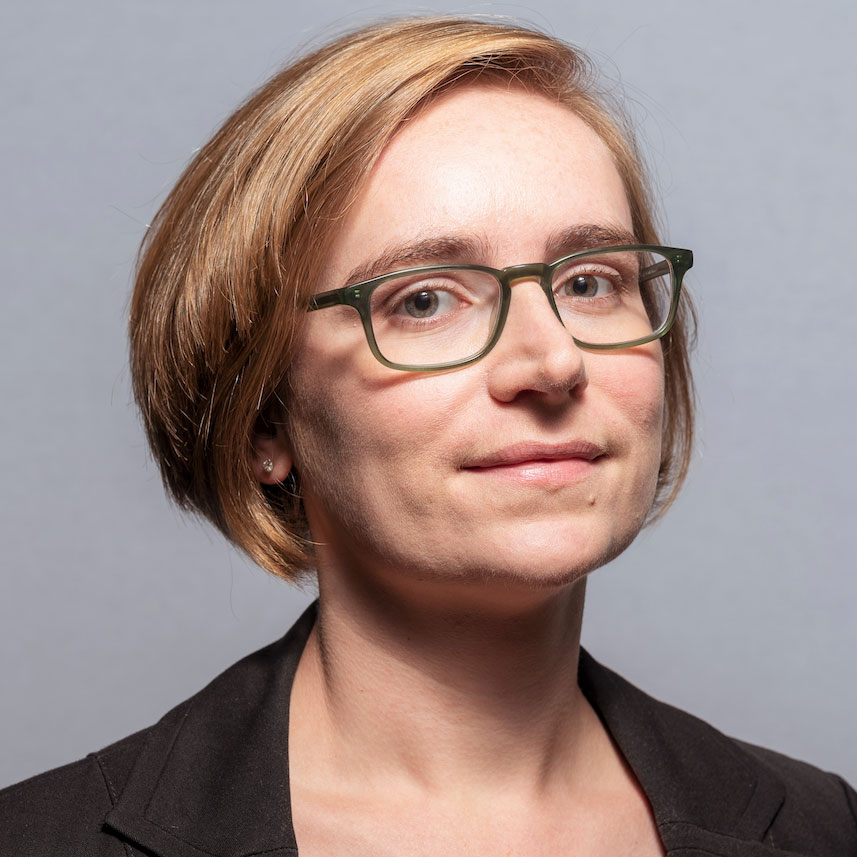
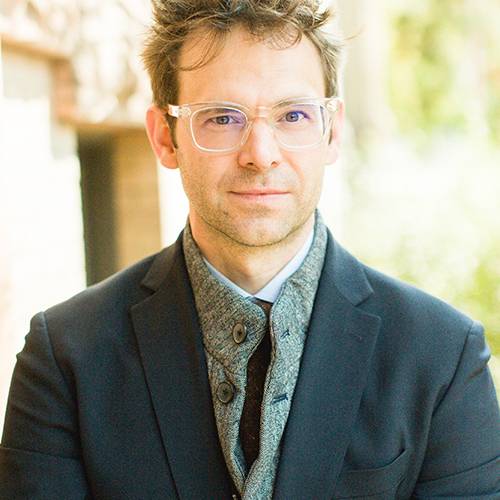
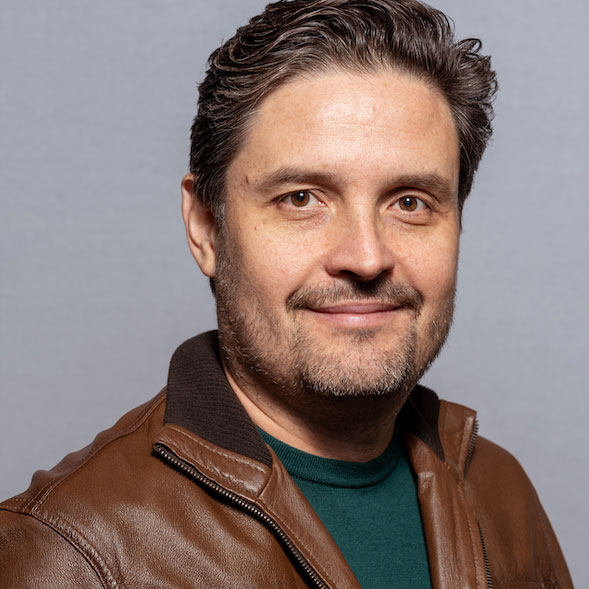

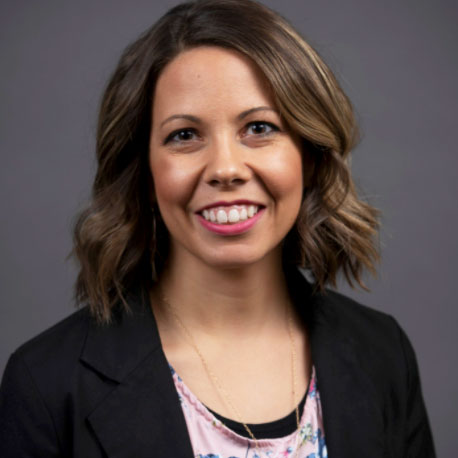

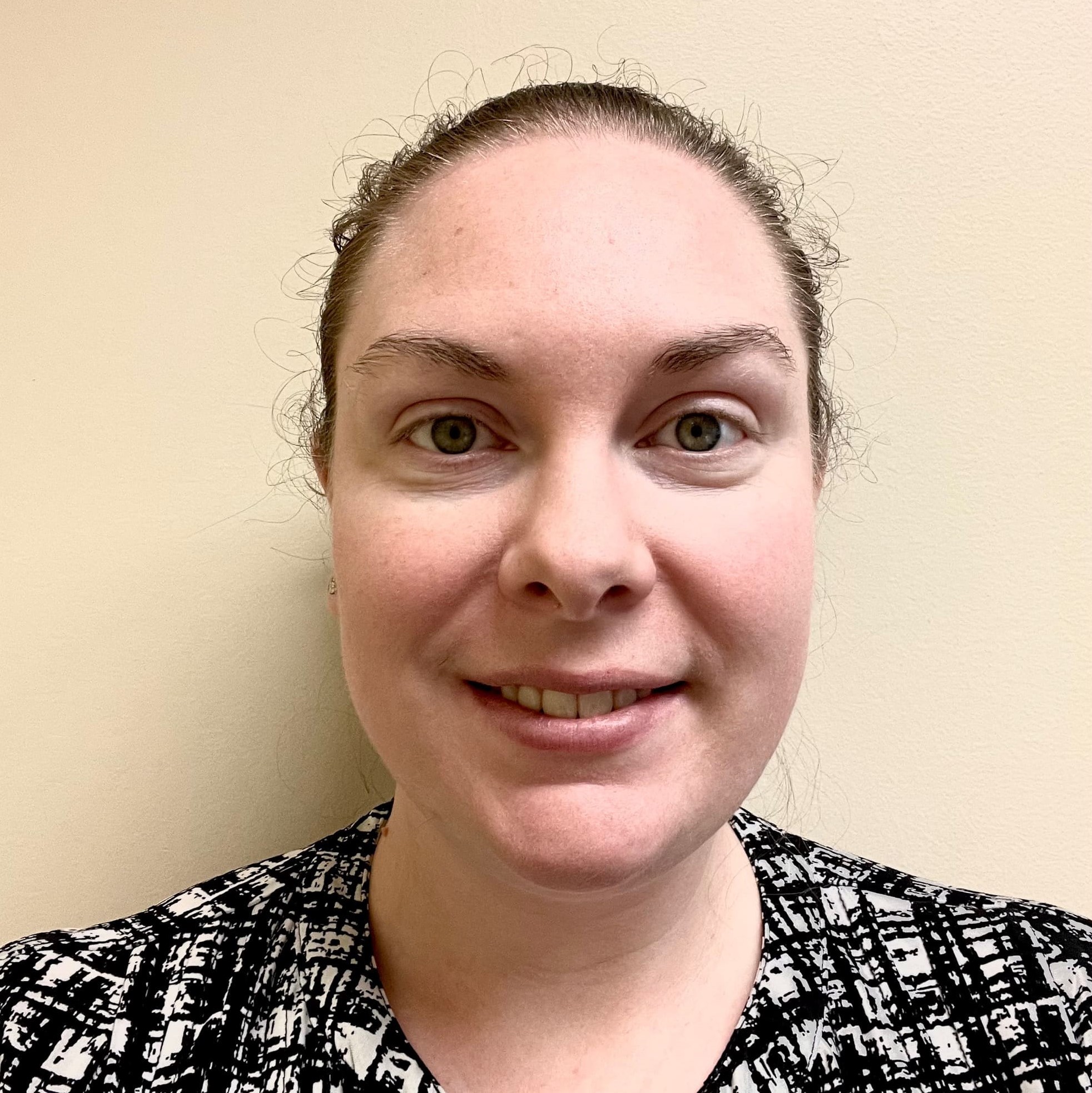

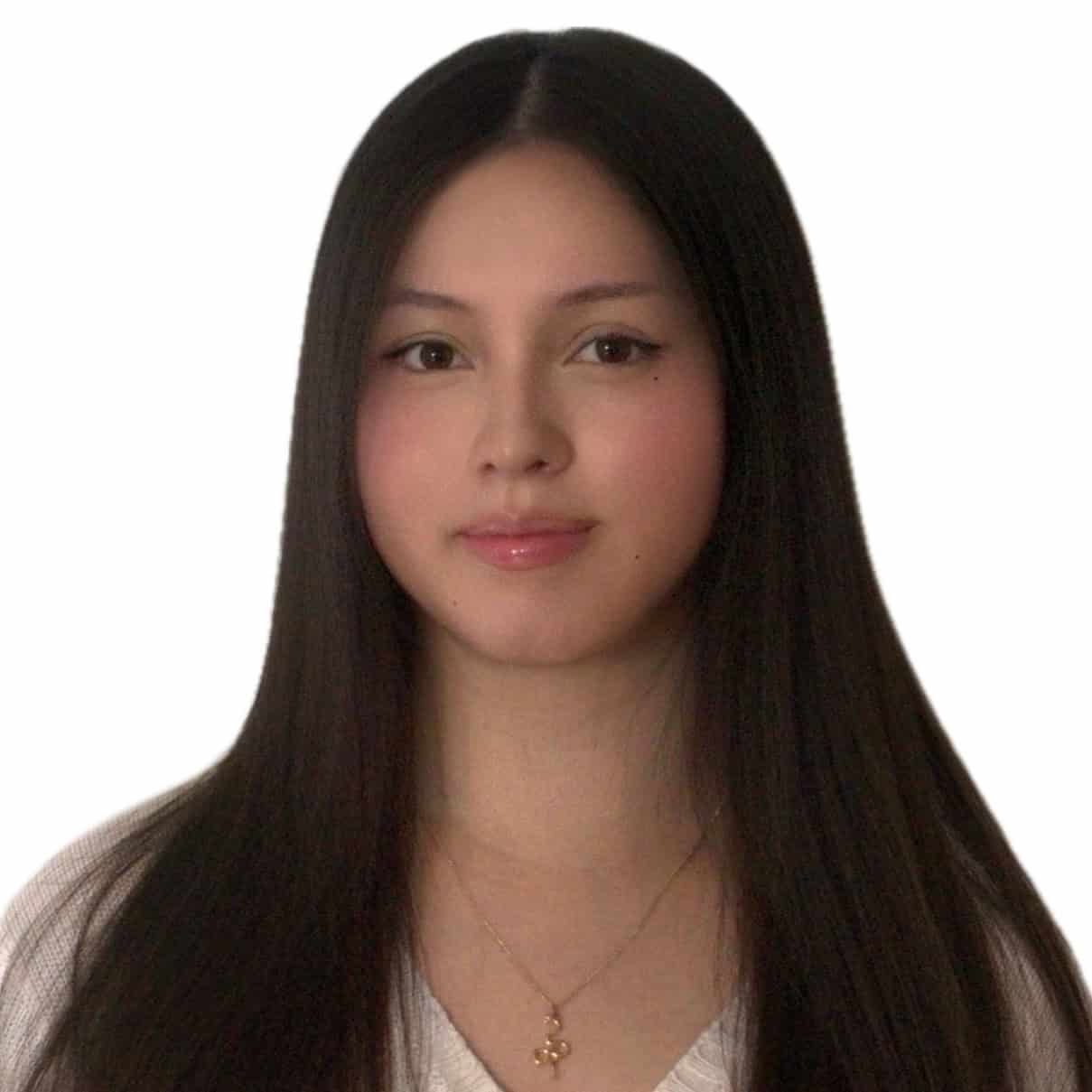 Cindy Diaz Rey
Cindy Diaz Rey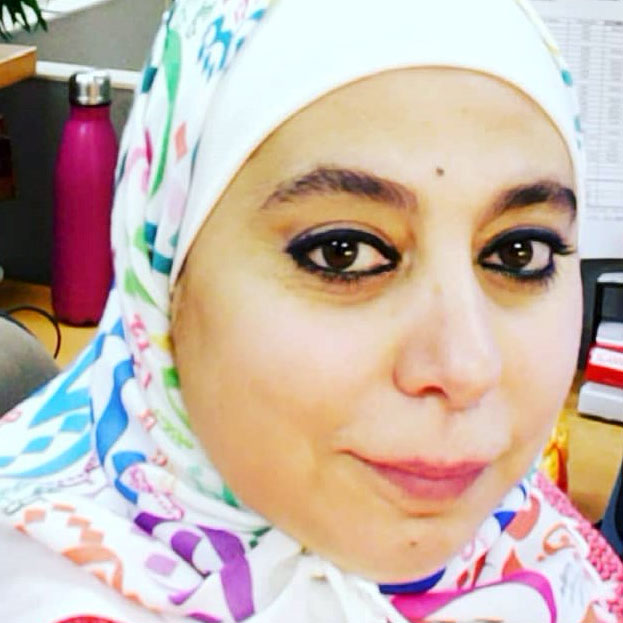
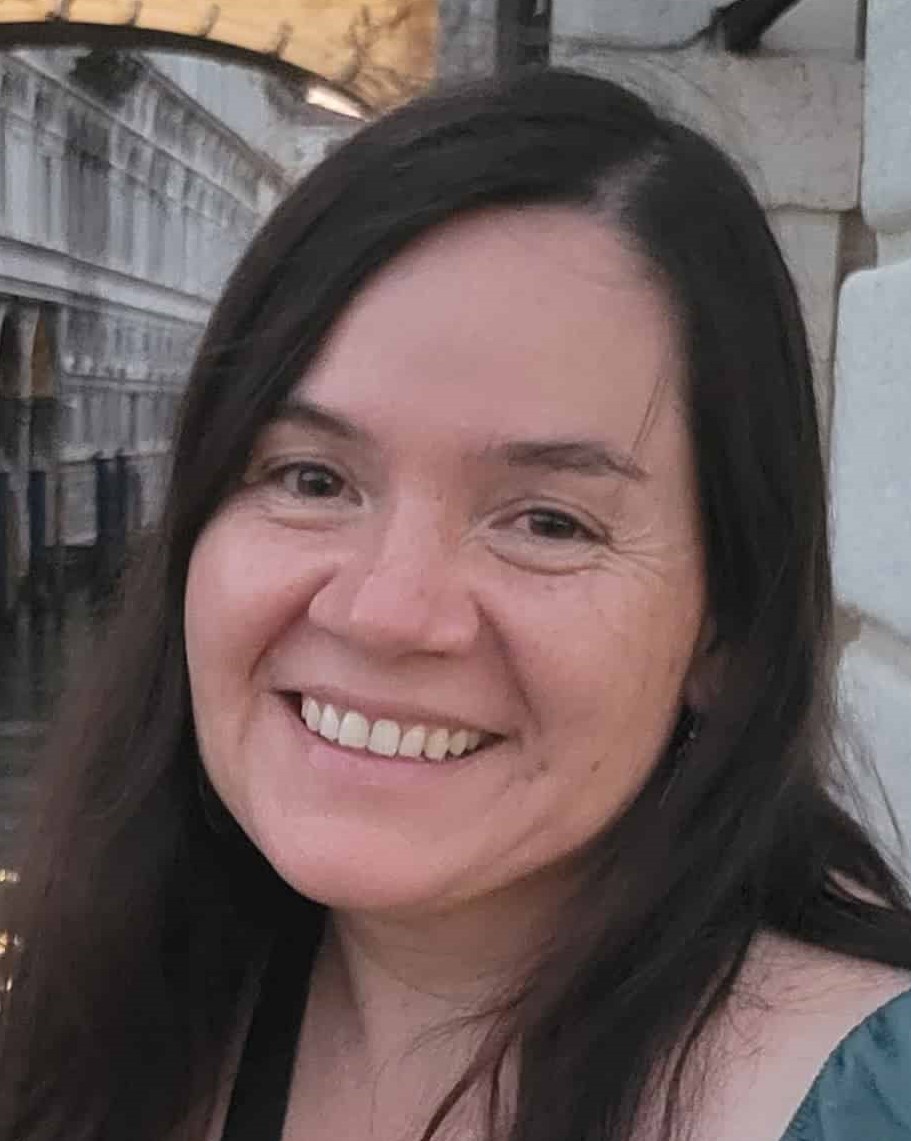 Sussy I. Alvarez Merino
Sussy I. Alvarez Merino